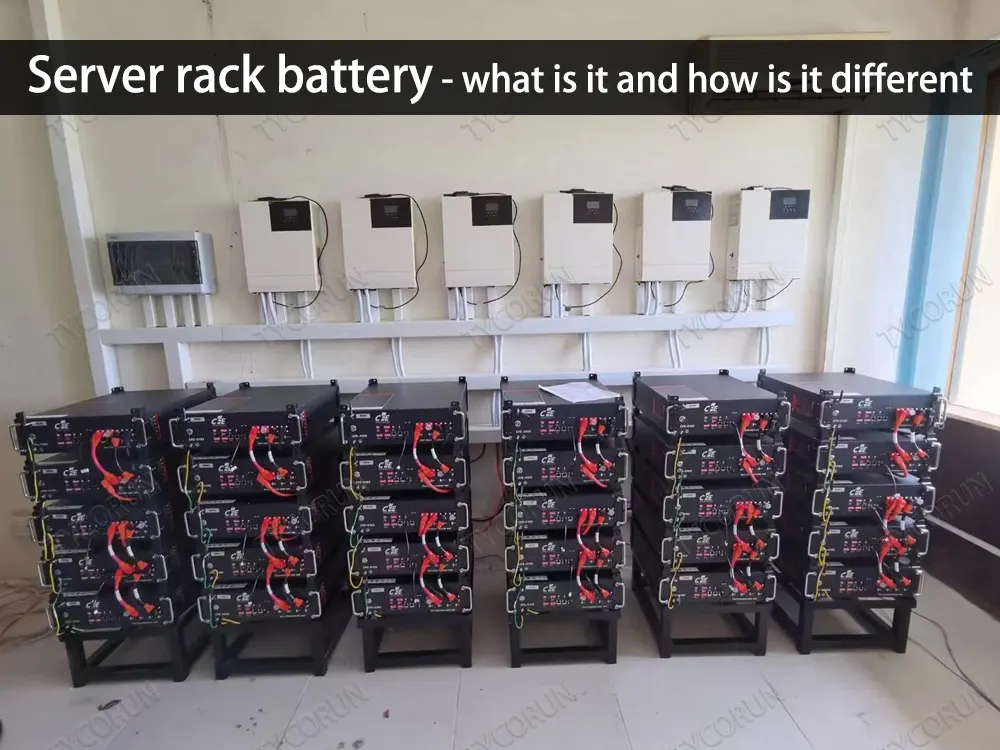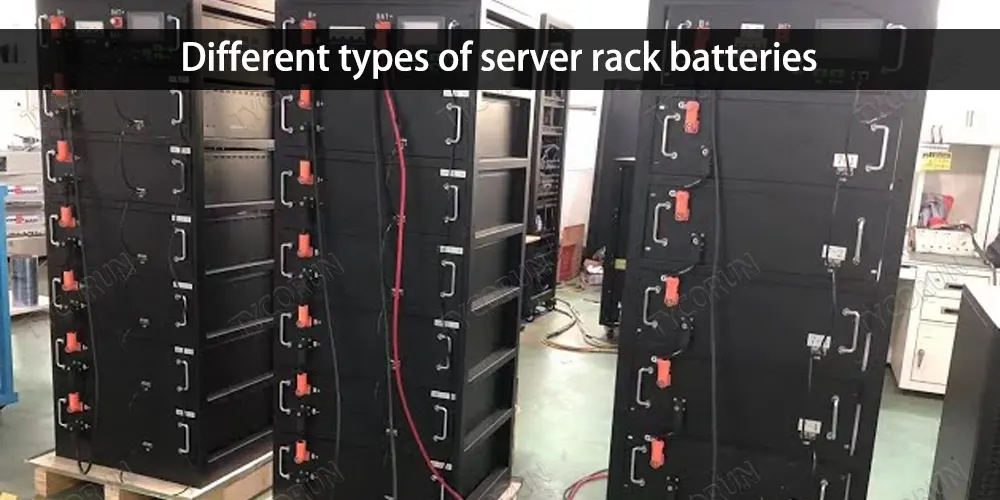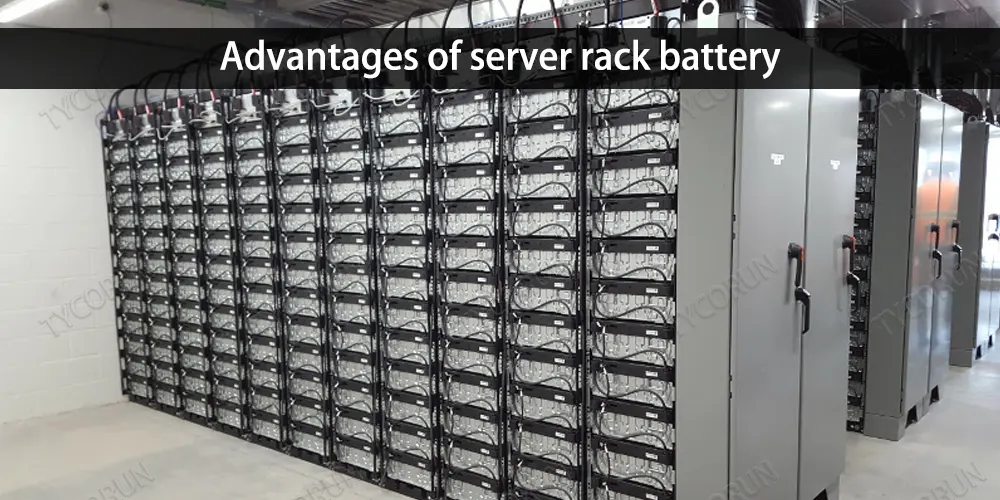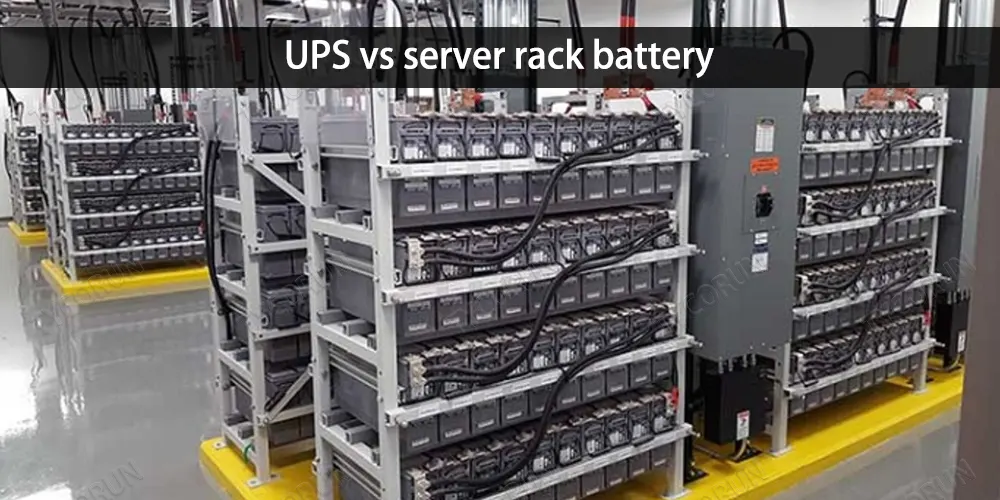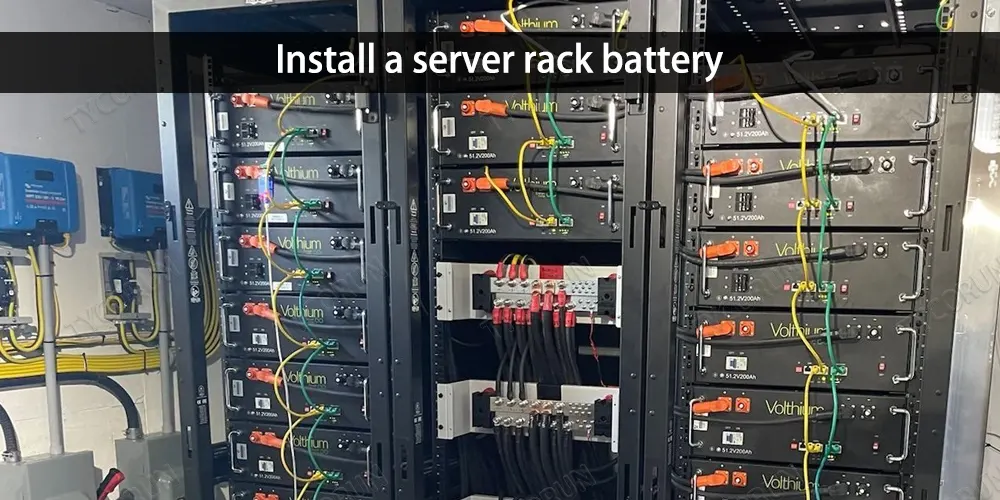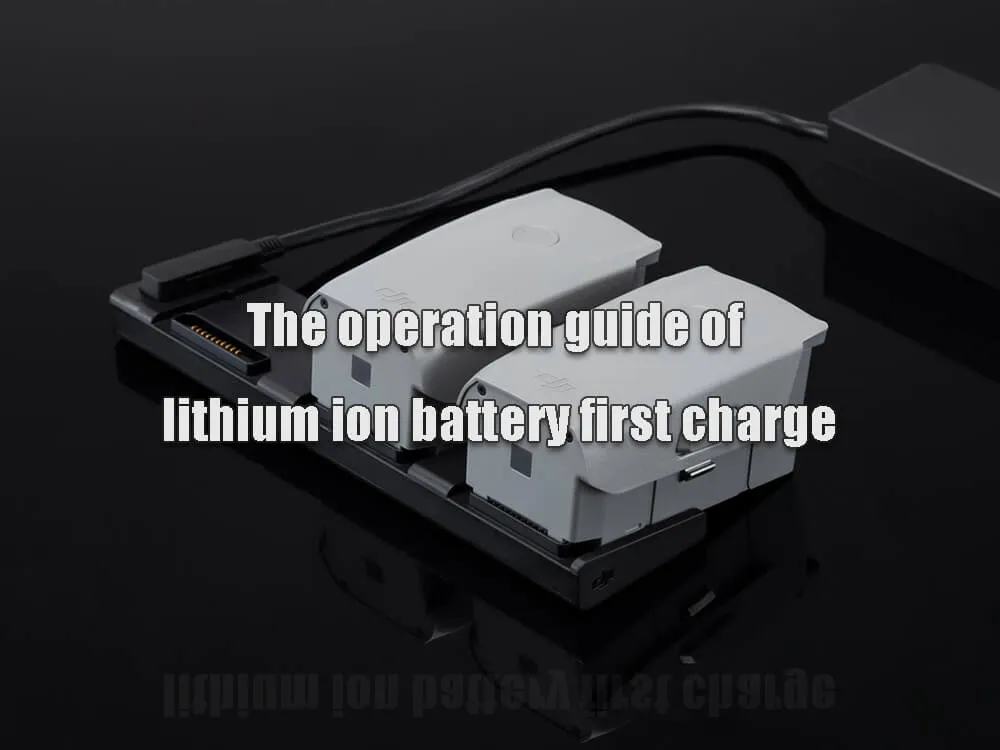Home » lithium ion battery knowledge » Server rack battery – what is it and how is it different
Server rack battery - what is it and how is it different
Consistent power from server rack batteries is essential in the modern information technology industry.
In the event of a power loss or fluctuation, these batteries will keep servers operational, protecting data and reducing downtime. Thus, there are different battery types for applications and energy storage solutions occur.
In this article, we’ll go over what to look for in a good server rack battery and why it’s crucial for maintaining smooth operations. We also compare it to other batteries and briefly explain how to install it.
What is server rack battery?
Servers and other rack-mounted electronics often rely on backup power from server rack batteries.
A rack is a metal frame that stores many devices in a vertical configuration, maximizing available space and ventilation. A server rack battery is kind of battery usually installed at the rack and connected to the devices through cables.

In data centers, where computers store and analyze vast quantities of data, having server rack batteries is crucial for maintaining smooth operations.
A server rack battery may prevent data loss, system failure, and downtime caused by power interruptions and fluctuations. If the power goes out, a server rack battery can keep the servers running until it comes back on or another solution is found.
What are the different types of server rack batteries?
As was previously said, several server rack battery options are available in the market, each of these with their advantages and shortcomings. Features of some of the more popular kinds include:
● Lead-acid batteries: The lead-acid battery is the most common and longest type of server rack battery in terms of existence. You don’t need to spend a lot of money to acquire them, yet they are leaky and rust easily.
They have a limited lifetime and a low energy density. Overcharging may occur if you don’t keep an eye on them while they’re charging.
● Nickel-cadmium batteries: These are another type of server rack batteries comparable to lead-acid batteries in terms of cost. However, they have a poor energy density, a limited lifetime, and are hefty and clumsy.
Additionally, they have a memory effect, which causes them to lose capacity if they are not entirely drained before being recharged. They also include environmentally hazardous poisonous cadmium.
● Nickel-metal hydride batteries: Another kind of server rack batteries that compare well to nickel-cadmium batteries in terms of performance and price is nickel-metal hydride batteries.They outlast nickel-cadmium batteries and have a greater energy density.
They have no memory impact and are cadmium-free. However, they have a high self-discharge rate and must be charged and monitored often to avoid being overcharged or discharged.
● Lithium-ion batteries: Lithium-ion batteries are one of the best rechargeable batteries in the realm of server rack batteries supplies. They can store much power in a small package and last a long time.
They have a low self-discharge rate and can maintain a steady and reliable power output. However, they use a complex control system to avoid overcharging or overheating and are, therefore, rather expensive.
What are the advantages of server rack battery?
● Increased Reliability
By installing server rack batteries as part of your infrastructure, you can greatly improve the dependability of your systems. During power outages, they can serve as a dependable backup power supply, bridging the gap and facilitating a smooth transfer to alternate power.
This keeps your servers and other crucial electronic devices running smoothly, reducing the likelihood of downtime and preserving productivity.
● Data Protection
Batteries in server racks are essential for safeguarding sensitive information. Power outages might harm businesses because of the possibility of data corruption or loss.
You may avoid these problems and protect your data by utilizing server rack batteries as backup power source. Businesses that deal with confidential information or depend significantly on data to operate especially need this.
● Equipment Longevity
Sensitive electronics are vulnerable to harm from power fluctuations and surges, leading to early failure and expensive repairs. UPS systems, including server rack battery packs, may shield sensitive equipment from power surges and spikes.
They help save money and increase dependability by stabilizing the power supply and extending the life of servers, switches, routers, and other network infrastructure components.
● Scalability and Flexibility
Server rack batteries provide scalability and flexibility to adapt to the varying power requirements of firms. Adding more battery units to the server rack is a simple way to extend UPS system as your infrastructure develops and expands.
Because of its scalability, it can easily adjust to fluctuating power needs without requiring expensive infrastructure upgrades.
How long do server rack batteries last?
How long server rack batteries will last depends on several factors, such as the battery type, quality, usage, and maintenance. A server rack battery has an average lifespan of 3–5 years.
However, this might be much greater or shorter depending on environmental factors. It is essential to follow some best practices to extend the lifespan of server rack batteries, such as:
● Choosing high-quality, suitable batteries designed to work with servers and other devices;
● Regular and correct charging and discharging of the batteries to prevent them from being damaged by either overcharging or undercharging;
● Constantly checking the battery’s charge and status for early warning signals of failure;
● Having new batteries installed whenever the old ones die or exhibit symptoms of wear and tear or malfunction;
● Avoiding excessive temperatures, humidity, or dust by storing and using the batteries in a cool, dry, and well-ventilated location.
What is the difference between a UPS and a server rack battery?
An uninterruptible power supply, sometimes known as a UPS, helps ensure that electronics keep running even if the power goes out or fluctuates.
UPS and server rack battery both provide power support. However, there are some key differences between the two.
● Specifications: General UPS have battery capacities ranging from large to small to support different application scenarios. However, most server rack batteries are relatively large, and the scenarios they face are narrower than that of UPS.
● Runtime: UPS units typically have a shorter runtime than server rack batteries since they are designed to provide power to multiple devices. Server rack batteries, on the other hand, are designed to provide longer runtimes to a single server or a few pieces of equipment.
● Price: A large UPS will cost more than a server rack battery because it will be more fully equipped with surge protection.
Comparison of server rack battery and regular battery
A server rack battery and a regular battery are both devices that store and provide electrical energy, but they differ in design, function, and application.
A server rack battery is a device designed to provide auxiliary power to servers, and other equipment affixed to a rack. In contrast, a regular battery is a device used to furnish power to portable or compact gadgets, such as smartphones, laptops, cameras, and the like.
A regular battery can be either rechargeable or disposable and exhibits a variety of forms and sizes that are often plugged into or affixed to a device through a cable.
The voltage and capacity of a server rack battery surpass those of a standard battery due to its need to sustain several devices on a rack. A server rack battery offers extended backup duration and enhanced power stability compared to a conventional battery.
The maintenance and monitoring requirements for a server rack battery are more extensive compared to those of a regular battery. This is due to the need to conduct frequent testing, charging, and replacement procedures to maintain optimum performance and dependability.
Many environmental conditions, including temperature, humidity, and dust particles, may also influence the performance of a server rack battery.
How much does a server rack battery cost?
The cost of server rack batteries can vary depending on the battery’s type, quality, size, and brand. However, according to some internet sources, a server rack battery might cost anywhere from $600 to $2500. The capacity and voltage of a server rack battery are two variables that impact its price.
Using a high voltage battery or a high-capacity battery provides more backup power and longer runtime, but is also more expensive. The battery’s technology and build quality also affect the price of a server rack battery.
Smart charging algorithms, improved energy storage capacities, monitoring systems, cables, connections, and other accessories make a battery more valuable and convenient. The battery’s price may rise if it has any of these extras.
Can I install a server rack battery myself?
Depending on the rack and battery specifications, installing server rack batteries might be a relatively straightforward or challenging task.
Here are some guidelines:
● To begin, you must invest in server rack batteries that are fully compatible with your devices. For further information, see the servers’ and devices’ user manuals or get in touch with the manufacturers.
● Second, gather all the equipment and supplies you’ll need for the installation, such as screws, a drill, a multimeter, cables, connections, and so on. You should also wear protective gloves and goggles to prevent harm or electric shock.
● Third, disconnect all servers and other electronic devices from the mains. It would help if you also disconnected any cables or wires connected to them. If you want to prevent any misunderstanding, name the cables or wires.
● Fourth, based on personal taste and available space, the server rack battery may go either at the bottom or the top of the rack. Use screws or brackets to attach the battery to the rack. Make sure the battery is correctly grounded as well.
● Use cables and connectors to link the server rack battery to your data center’s servers and other hardware. If you need help with wiring, look at the instructions that came with your batteries or the documentation for your servers and other devices.
● Finally, power on the servers and other devices in the server rack and thoroughly examine them. It is important to regularly examine the battery’s capacity to charge and provide backup power in case of power loss or fluctuations. Always monitor the battery’s condition and charge level to ensure it works at its best.
These instructions for installing server rack batteries are only for simple reference. To be on the safe side, you may choose to have a technician or electrician do the installation instead.
Conclusion
This article provided server rack battery maintenance and scaling advice for maximum performance, as well as the advantages you get when you opt for it.
Server rack batteries are crucial for effective and continuous operations, particularly in data centers where servers store and process massive amounts of data.
FAQs
Server rack batteries may fail, causing major issues for servers and equipment that require them for backup power. A server rack battery failure may cause data loss, system failure, or downtime, affecting server and equipment performance and dependability. A server rack battery failure might generate sparks, fire, or explosion. Thus, the server rack battery should be monitored and tested often and replaced when it dies or malfunctions.
A server rack LiFePO4 is a type of server rack battery that uses lithium iron phosphate (LiFePO4) as the positive electrode material. Compared to other battery types, LiFePO4 offers a longer lifetime and cycle life, greater thermal stability and safety.
You can use server rack batteries in an RV, but you must follow some precautions and be careful with its usage. Server rack batteries can power RV lights, fans, TVs, fridges, etc. However, you must evaluate the server rack battery's compatibility and capacity with the RV before utilizing it.


